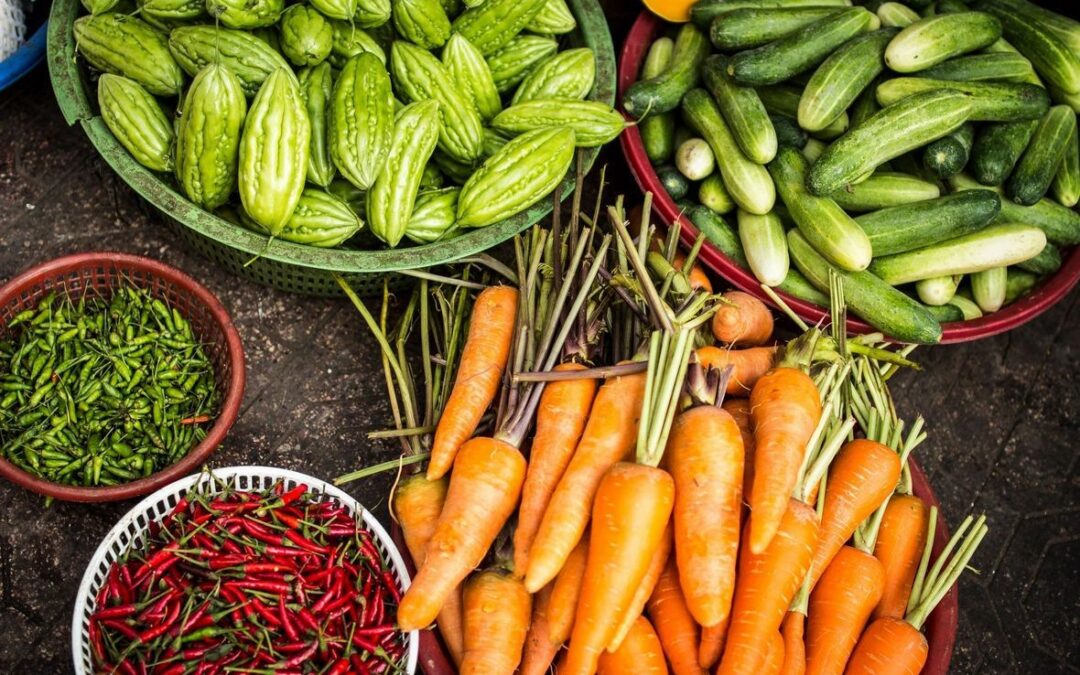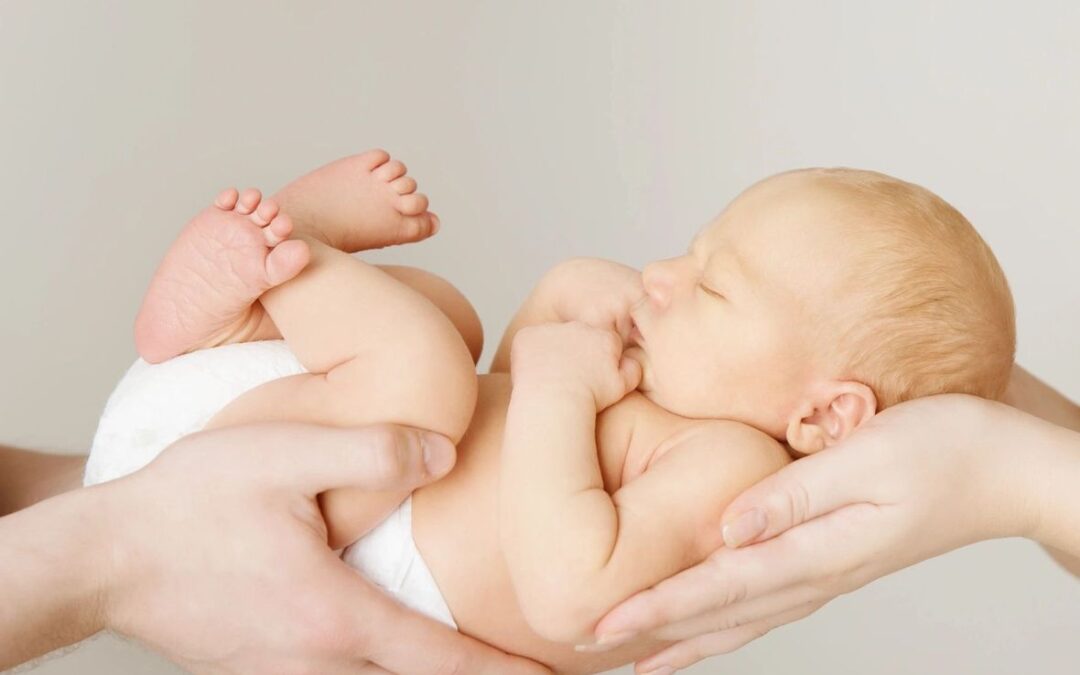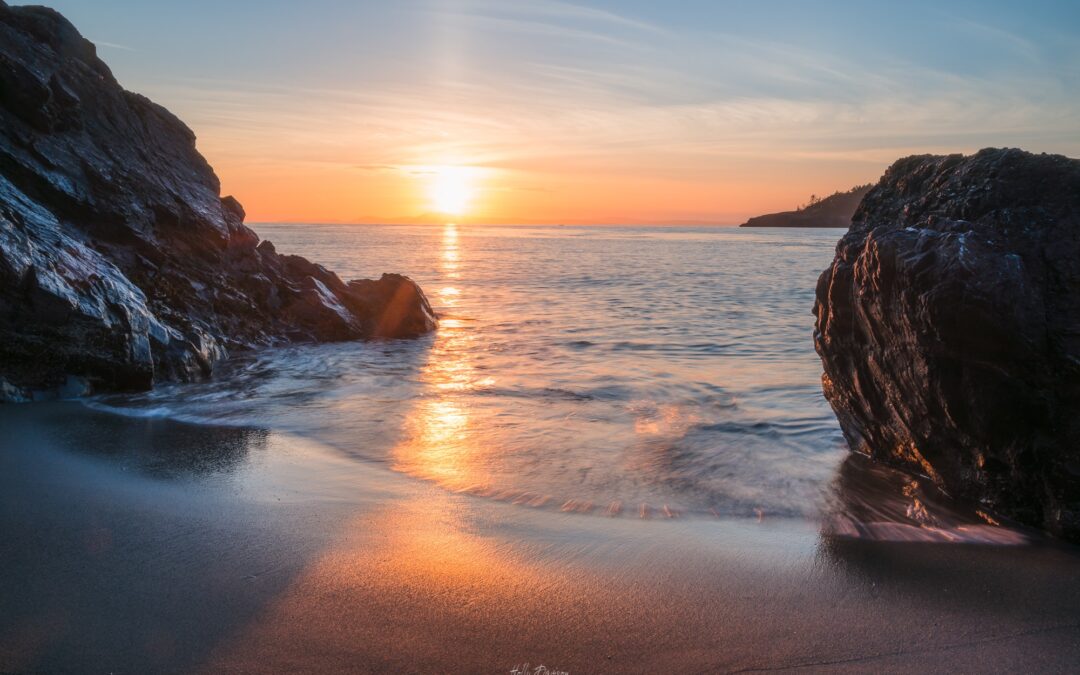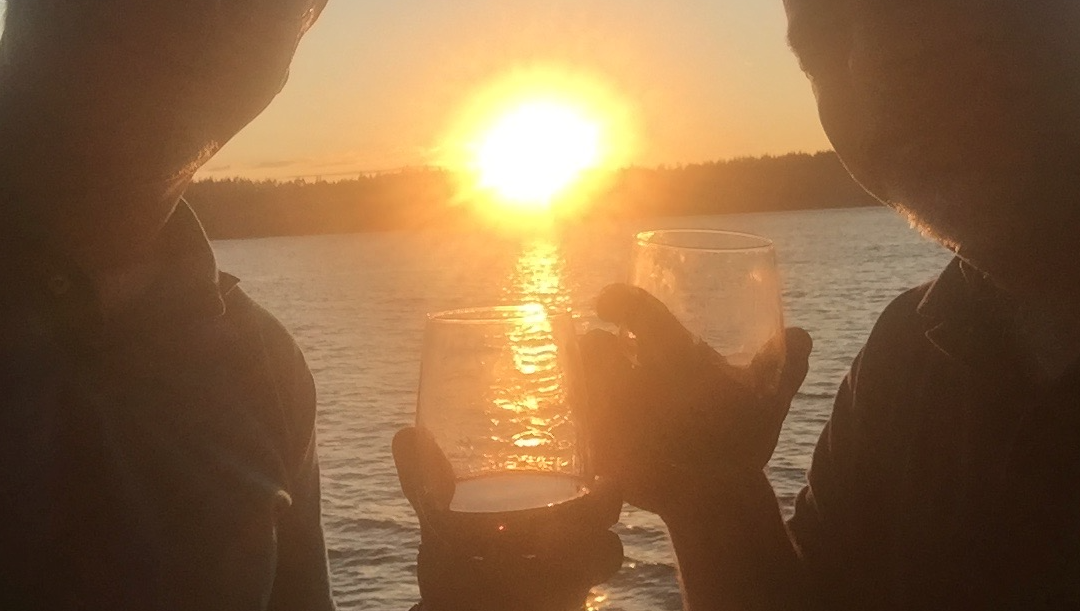
Aug 10, 2020 | Pastor Jim's Blog
Today’s Word from Pastor Jim…
When I was a kid, we ate a Midwest diet. Chipped beef on toast was a favorite, white bread, white food, meat with every meal, and some of the nastiest vegetables that you have ever seen. I had lots of battles with my parents. I would sit for the longest time looking at Brussels sprouts, pushing them around my plate with a fork, hoping they would disappear. Yes, we had a dog, but the dog was not stupid. She would eat bread or meat but not veggies. There I was, a prisoner of unreasonable parents, unable to leave the table, and unable to squeeze down the three tiny cabbages that I was expected to consume.
I was raised on a Midwest diet. When Felicia and I first came to the Northwest in the fall of 1984, the Internship Committee at our church on Bainbridge Island hosted a dinner for us. The dinner was at a swanky house looking out on the Puget Sound to the floating lights of the Emerald City. The wine was good, certainly better than anything that we had been drinking as poverty-stricken students weighed down by debt. As dinner approached, I could smell the charcoal briquettes, and I imagined a nice rib eye steak.
When I inquired, I was told that they were grilling salmon. The image that popped in the mind of the new intern, who had never been west of the Mississippi, was of my Mother’s infamous salmon patties pan fried, fresh from a can, crunchy little vertebrae hiding in the flesh. I had never had grilled salmon before. In the year that followed the world opened up to us in new ways. We set our sights on returning to the Pacific Northwest.
When I was a kid, we ate a Midwest diet and attended church every Sunday. There were no preachers in my family. I was surrounded and mentored by middle class, hard-working, high school educated, salt of the earth people. Travel was a luxury that most could not afford, and the only relatives of mine who had visited Europe or Asia did so with Army boots on.
I took little interest in religious study; Confirmation was mostly a waste of a Saturday morning, and I was not very proficient at memorizing the Small Catechism of Martin Luther. I was proficient at sleeping during the worship service. That is until my father, tired of my slumber, decided that if I needed more sleep then I could spend the entire Sunday afternoon in my room napping. My brother and I rebelled and took up sitting with a few other trouble-makers in the back row of the sanctuary underneath the balcony. Let’s just say that did not end well.
But my ears perked up one Saturday morning as we were studying the Bible in Confirmation class. Pastor Sven Thompson said, “Jim, will you read the next four verses?” It was not a question, and no one messed with Pastor Thompson, a rugged immigrant from Norway who cut his teeth on the streets of New York City. Reading was not my strong suit, but I had no choice but to read aloud before my classmates, risking the giggles, and waiting for Pastor Thompson to correct my attempt at destroying the written word of God. “Please Lord, if you are really there, let there be no words that I cannot pronounce.”
It was then that the heavens opened and God answered my prayer. It was the moment that I knew there was a God, and perhaps first felt that I could trust God.
“Jim Lindus, please read Romans 14:1-4.”
“Welcome those who are weak in faith, but not for the purpose of judging their opinions. Some believe in eating anything, while the weak eat only vegetables.”
I stopped on a dime, my eyes were opened, and I sensed that I had been set free. I grabbed my pencil and took the word of God home to dinner. “The weak eat only vegetables.” Take that Mom! God has spoken. I am fairly sure that this isolated text was taken out of context, but my Mother was encouraged that her “slow son” had at least showed interest in something besides baseball.
Funny, I like Brussels sprouts now.
I am going to continue this story tomorrow.
But for now, eat your vegetables and know that we are one day closer.
Pastor Jim
To make a donation to Trinity, follow this link: https://trinitylutheranfreeland.org/give/

Aug 1, 2020 | Pastor Jim's Blog
Today’s Word from Pastor Jim…
Every day I receive dozens, sometimes hundreds, of emails. More than half of them are junk: scams, mattress sales, or forwarded jokes. Those don’t last very long in my mailbox. I read touching messages from you, telling me about your dear family members, friends in need of prayer, or seeking some spiritual direction as you navigate your way through this fallen world.
Most of the feedback I get is positive. Those who read my messages or listen to my sermons tend to overlook my abusive treatment of the English language. I appreciate everyone who takes a break from busy schedules to consider my thoughts. I am thankful, too, for those who take the time to praise or criticize my opinions.
This morning, I opened my email to read words of encouragement from a parishioner and friend. She quickly moved on from encouragement writing, “On a different note, you were in a dream that I had in the wee hours of the morning. You had died! Rather suddenly and unexpectedly.” I figured that it was sudden as I knew nothing about my demise. She continued to describe the funeral. It must have been post-pandemic, as there were people there and no mention of masks.
“For everything there is a season, and a time for every matter under heaven. A time to be born, and a time to die.”
I am around death a lot. I am around death enough to know that I don’t need to worry about mine. That does not mean that I am refusing to wear a mask or use a seat belt, or planning foolhardy, dangerous activities like mountain climbing or pretending to understand women. I am around death enough to know that my day will come, and I will once again be safe in God’s arms.
My reply to my prophetic friend who dreamed of my death was this, “If I were to die tomorrow, I would have had more good meals, more warm beds and hot showers, more hugs, more tender moments, and the opportunity to see more of the world than 95% of every human who has ever lived. If I were to die tomorrow, I would have no complaints.” How silly it would be to say, “Why me?” How greedy it would be to want more, when I have already had more than my share.
Our frail humanity is not a weakness; it is a thing of beauty. Nothing is more precious or beautiful than a newborn baby, and that newborn is frail and totally dependent on others for the continuation of life. The illusion comes as we grow up, we venture out believing that we are masters of the universe, immortal, strong, needing no assistance, seeing no limits, unaware of our place as temporal creatures.
Our frail humanity is not a weakness; it is a thing of beauty. We need each other, we need God, we will traverse the terra firma for a few decades, drinking fine wine, building lives and homes, birthing children and forming friendships and then, with or without warning, it will end. And it is good, and we will be safe, and we will return to the one who loves us, forgives us, and in life or death will never leave our side.
Thanks for sharing the journey. Thanks for reading. Keep those emails coming.
One day closer,
Pastor Jim

Jul 31, 2020 | Pastor Jim's Blog
Today’s Word from Pastor Tom Kidd…
Maybe you have had those moments when the words of scripture can be pretty disappointing? No? We tend to speak of how the scriptures are uplifting or inspiring or hope-evoking. I mean, that’s what we expect from the Holy Scriptures, right? Well, there have been moments in my life of faith when God’s Word landed in my little world like a thud. Like the time someone said to me, “Man’s anger serves not the righteousness of God.” What? Where’s that? James 1:20. Bummer. You see, righteous indignation, along with humility, are two of my strongest gifts. Apparently, I am now down to one.
I am only partly kidding (the humility part). A long time ago, a spiritual director I was working with asked me one of those really annoying questions, “What do you think your sadness is about?” I was somewhat dumbfounded at the question since I was not speaking of “sad” things at all. At that moment in our conversation I was fully giving myself over to things that were angering me. I was mad, not sad. “Excuse me, I do not understand.” I assumed she misheard me. “What do you think you are so sad about?” That was an invitation into many hours of conversation which opened for me an entirely different understanding of human behavior – sad almost always precedes mad. Life makes us sad, but because few of us have life skills to do “sad,” we learn to do “mad.”
I learned that almost everything which could lead me to a mighty case of righteous indignation was, in fact, born out of sadness. When I think of the death of George Floyd, I become enormously sad. I also get why people rise up in righteous indignation, get angry, want justice (sometimes masquerading as revenge). Or, when the U.N. informs us that food poverty has now reached depths of a new level where 10,000 additional children are now dying each day from starvation, I get sad. At the same time, I understand why people scream in anger at the economic injustice of 50% of global wealth stashed behind the walls of the top 1%, and 76% of the top 10%. Believe me, I understand why anger can rise up and violence can occur.
Yet in my own life I have been led to understand that there was, almost without exception, a “sad” that preceded a “mad.” Sometimes the sad moment was many years prior. I was giving vent to my anger and my precious spiritual director was inviting me into a deeper understanding of my life, and a deeper expression of my faith.
I have been held captive this week by the honoring of Congressman John Lewis. Specifically, my imagination has been stirred by the life of a man whose commitment to non-violence and love for all people was animated not simply as a political strategy, but as a moral conviction. Stories abound about how John Lewis would endure beatings and insults out of love for that person, believing that in the end all people, especially including African Americans, would know social and economic justice. In the end, John Lewis’ vision wins because Jesus wins. I can hear the good Congressman’s voice rise up, not in anger, but as a result of a profound sadness that so many lives are given over to fear and hate that perpetuates a racism that is inherently violent and spirit-killing.
Scripture is full of laments at God’s sadness over our inability to love one another as God has loved us. Our salvation? “The Lord is compassionate and gracious, slow to anger, abounding in love… he does not treat us as our sins deserve.” Psalm 103:8, 10.
I am going to continue this conversation in next week’s blog: “Sadness Precedes Madness.” During this next week, you might consider engaging in some of your own personal reflection and/or journaling over the question, “What do I do with my anger?” Or, maybe you might find it more illuminating to consider the question, “How does my sadness inform my faith?” I believe the two questions are inherently connected.
I will give thanks this week for the public life of faith of Rep. John Lewis. We have lost a lion for non-violent change. Our life is better because of his. I am sad at his death.
God’s peace, we are closer,
Pastor Tom Kidd

Jul 30, 2020 | Pastor Jim's Blog
Today’s Word from Pastor Jim…
“Let us not grow weary in doing what is right,
for we will reap at harvest time, if we do not give up.”
Galatians 6:9
Speed was never my forte. Endurance was not my forte either. In fact, I think that I am still looking for my forte. But distance running was my greatest sports nightmare. Short sprints of 25 yards or so were not so bad. Why anyone would want to run 100 yards straight, was beyond me. And in Physical Education one year, a sadistic teacher made us all run a mile. That was not a typo. I mean a whole mile, four times around the track in one class, without a water bottle or even a snack bar. After that, I took up golf, and was freed forever from running or even sweating. Unfortunately, golf has a dark side too, mental instability. But I digress.
We thought that this pandemic was going to be a sprint. You remember, “Circle May 17th on your calendar and we worship again.” We will sprint through this pandemic, and resume life as we knew it. Our expectation was not uninformed; the CDC offered us the pandemic isolation timeline. It was going to be a dash to the finish line, but now we have come to realize that it will indeed be a marathon. No High School Football this fall, can college be far behind? Will the NFL start and finish the season? Our public and private schools, tiny Trinity Preschool, and massive universities enter the fall under a cloud of uncertainty. Every question brings another series of questions. Is it safe for children to be in school? Is it safe for teachers to be exposed to 20 students, not knowing where those 20 students and their families go after school, or what they have been exposed to? We were under the illusion that this pandemic was going to be a sprint. School and church online, (or on ZOOM for a few weeks), is one thing, but now parents, teachers, and church workers are waking up to a new reality. This pandemic is going to be a marathon, not a sprint.
This marathon is especially taxing to our Senior population and to those with underlying health conditions. This virus is a real danger, and so the most vulnerable have been isolated in their homes. TLC members make grocery runs and pick up the mail, while sharing a smile and providing a vital connection to community and to the outside world. A quarantine of a few days or even weeks would have been a challenge, but now it is clear that this pandemic will be a marathon, not a sprint.
South Whidbey has been mostly spared the ravages of Covid19. Perhaps we have just been lucky. How long can our luck hold out? Perhaps God has been protecting us. That is a dangerous theological road to go down. Very few of our parishioners have been stricken with this virus, and even though much of our TLC population would be defined as the most vulnerable, we have not had a single death. Not a single death from Covid19, a pandemic that has claimed hundreds of thousands of our citizens.
I think that we have been protected. We have protected by the isolation of the island, by wide-open spaces, by not gathering, by wearing masks, by being cautious, by social distancing, and by the services of essential workers who risk all every day for us. Every fiber of our bodies long to be together, to share handshakes and hugs, to sing and cry and pray together. “For everything there is a season and a time for every matter under heaven, a time to be born and a time to die, a time to mourn and a time to dance.” This season of isolation, quarantine, and uncertainty is lasting longer than we had hoped. But then we have never experienced a global pandemic before. This must be a season of patience, persistence, and endurance. This is not a sprint, this is a marathon, and the very lives of those we love are hanging in the balance.
There will be a vaccine. I am sure of that. The virus that assails us, will be defeated by science. Humans, created in the image of God, will survive and thrive and dance and play and worship again. We should not lose hope, for this is only a season in our lives. This season will be followed by other, better seasons. We should not lose hope, but we must not lose our discipline either. We must care enough to stay apart. That is how we will survive this pandemic.
Stay home, stay safe, keep the faith; we are in this together.
One day closer,
Pastor Jim

Jul 29, 2020 | Pastor Jim's Blog
Today’s Word from Rev. David Bieniek…
I have been experiencing a lot of deaths lately. Not all of them have been friends or family members, and some I have only known of through the evening news, but at least 8 people’s deaths have affected me over the last week or so. It started with remembering my mom and a good friend, both who died in 2007, and had July birthdays one day apart. Most recently my brother-in-law’s mother passed away after a long illness. In there were some deaths from Covid-19 which made the pandemic so much more real for me.
As Bereavement Coordinator for WhidbeyHealth Hospice for almost 10 years, I learned that each person’s grief is unique, and just because your head knows what to do with your grief, it does not always communicate that to your heart. Or maybe the heart just does not listen.
When it comes to grief, it is often important to express your grief in some sort of ritual – allowing your heart to express the pain it feels and helping your head to look forward. We all know about the common grief rituals in our society – funerals, memorial services, rosaries, wakes, etc. – many of which have not been available to us during this pandemic.
But rituals do not have to be large church affairs. Ritual is simply an action that has a deeper meaning for those participating – rituals should speak to you. For instance, allow your heart to express its emotions in a letter and then allow that letter to float up to heaven by sending it up in flames, floating away on the waves, or being torn into pieces and scattered in the wind. If writing works for you, consider writing your memories and feelings in a journal and then placing that journal next to a picture of your loved one.
Use nature in your ritual. Plant a tree or a garden to dedicate new growth to your loved one. Build or commission a bench in a beautiful place where you can sit and talk to your loved one – a great way to remember them and to be of service to others. If you can find a place, light a fire on the beach at low tide, speak to your loved one and watch as the tide comes in and washes away the fire.
Use art or creative crafts to express your grief. Paint a picture or a room, sew a quilt, or create a sculpture; as you do it, put your memories and prayers into every stroke, stitch, or movement. Your heart will be able to express the feelings. Rediscover and cook with cherished recipes that connect you to the one you mourn.
The night I found out my friend Patrick had died back in 2007, I went out at sunset with a white rose. I stood on a bridge and plucked petals and with each petal that fell into the water I recalled a memory and spoke to him. At the end there was a long line of white petals floating down the river in the golden sunset.
Each year on my mom’s birthday, we have a nice dinner, open a bottle of wine, and toast her at sunset – three of her favorite things. It is a simple ritual that keeps her alive in our hearts.
Your rituals do not have to be big – they just need to be meaningful to allow your heart to heal and allow you to move forward with your grief. If you need some other ideas, reach out. Grief shared is always easier to deal with.
Rev. Dave Bieniek







